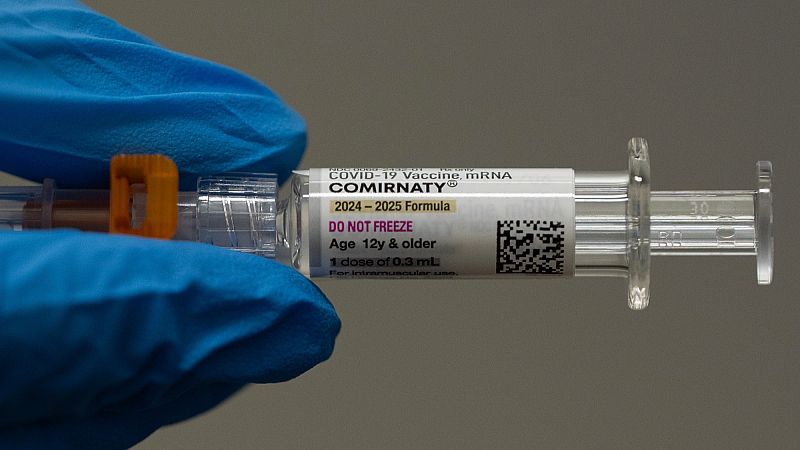How the mRNA technology behind COVID-19 vaccines could ‘turbo-charge’ cancer treatments

The mRNA technology from COVID-19 vaccines may help amplify cancer treatments that use the body’s own immune system to fight cancer, a new study has found.
Cancer patients who received an mRNA-based jab, for example, those made by Pfizer or Moderna, within 100 days of starting immunotherapy fared much better than those who were not vaccinated.
Cancer immunotherapies train the body’s immune system to recognise and destroy tumours. They are often used for advanced cancers, when other types of treatment haven’t worked.
The US-based research team followed more than 1,000 patients with advanced lung or skin cancers who were given an mRNA COVID-19 vaccine within 100 days of starting immunotherapy.
After vaccination, the patients’ immune systems were significantly stimulated – and they lived longer than those who did not get the jab.
The overall three-year survival rate for lung cancer patients, for example, was 55.7 per cent compared with 30.8 per cent, according to the study, which was published in the journal Nature.
The vaccine may have “turbo-charged their response to treatment,” Andrew Beggs, a senior clinical fellow at the University of Birmingham in the United Kingdom, said in a statement. He was not involved in the study.
The mRNA vaccines appeared to help by spurring a general immune response, as if they were helping the body fight off a virus, rather than targeting a specific protein in a tumour.
“The implications are extraordinary – this could revolutionise the entire field of oncologic care,” Dr Elias Sayour, a paediatric oncologist at the University of Florida and one of the study’s authors, said in a statement.
How mRNA technology could help fight cancer
Other scientists are also looking at mRNA technology as a potential new way to attack cancer. They are testing personalised cancer vaccines that fight a patient’s specific tumour as well as jabs that target genes commonly found in certain cancers.
Independent experts urged caution around the new study because the findings may be a coincidence. Patients who received the vaccine may have already been healthier, meaning they may have had a better chance of survival anyway.
“Only a randomised trial can tell us whether the vaccine itself drives the effect,” said Dr Lennard Lee, an associate professor working on cancer vaccines at the University of Oxford who was not involved with the study.
Even so, researchers said the early results are promising – partly because they held up among vaccinated patients with tumours that are difficult to treat with immunotherapies, known as “immunologically cold” tumours.
In those cases, immunotherapy can be ineffective because “there is so little existing [immune] response to augment,” said Stephen Griffin, a professor of cancer virology at the University of Leeds who was not involved with the study.
If the latest findings hold up, Sayour said they could help scientists create new mRNA-based treatments for a broader swathe of cancer patients.
The researchers are planning a late-stage clinical trial to validate their findings and determine whether mRNA vaccines should be part of regular treatment for patients receiving this type of immunotherapy.
In the future, “we could design an even better nonspecific vaccine to mobilise and reset the immune response, in a way that could essentially be a universal, off-the-shelf cancer vaccine for all cancer patients,” Sayour said.
Today

